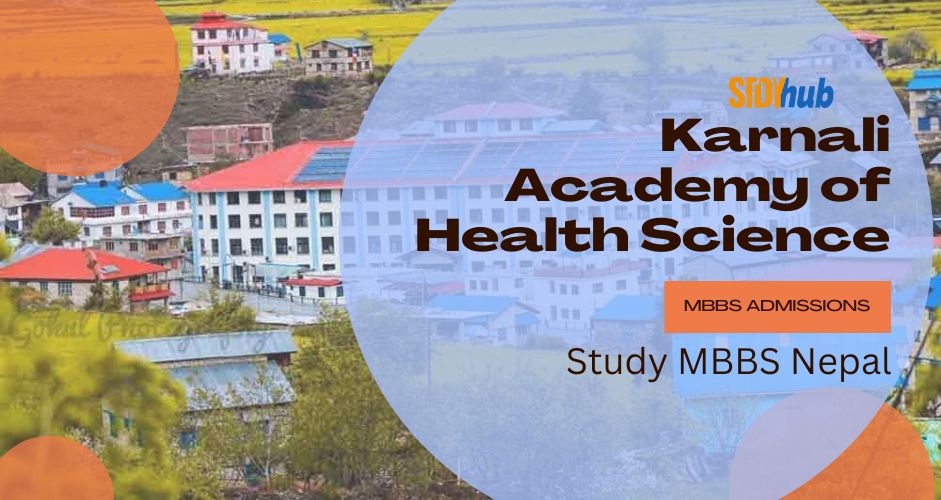
What is the fee structure of Karnali Academy of Health Science?
Karnali Academy of Health Science (KAHS) is a government-funded medical university in Nepal, established in 2011 by an Act of Parliament of Nepal and is managed by the Ministry of Health in Jumla district. The university campus is vast to accommodate a great infrastructure, library, cafeteria, etc., and provides high-quality, excellent management staff to organize the university's internal business and admission process. The highly educated professors supervise the students throughout their course and the internship, helping them become efficient doctors.
Why study MBBS in Karnali Academy Nepal
Karnali Academy of Health Science (KAHS) is a renowned name among the top medical universities in Nepal that works with biological materials, offering education in medicine, pharmacy, dentistry, pediatrics, and other related fields to national and international students, besides diagnostic services like Lab, X-Ray, ECG, etc. KAHS is approved globally by highly recognized organizations. All the classes are conducted in English for the convenience of international, non-Nepali speaking students, attracting candidates from all around the world.
Karnali Academy MBBS Admission Fees
The MBBS program at KAHS is a five-year curriculum including a hospital internship for one year. The annual tuition fee at Karnali Academy of Health Science is 45-46 lakhs INR, excluding the hostel fee. The hostel fee is approximately 1 lakh INR, and adding other expenses could cost up to 2 lakh INR. The university also provides the facility of student counselors for the convenience of international students who have just arrived at the university and do not know their way around the campus and complete the registration and other formalities.
MBBS eligibility in Karnali Academy
The application process involves the online submission of required documents for MBBS in Nepal, including 10th and 12th marksheets, NEET scorecard for Indian students, a passport-sized photograph, birth certificate, etc. The applicant must have completed the 12th standard from a recognized education board, scoring a minimum of 50% marks in major subjects. The university accepts physics, chemistry, and biology as major subjects for the MBBS program. Indian students need to have a valid score above the decided cutoff in the NEET exam. Those who have scored 50 percentile in the NEET exam can appear in the MECEE-BL exam to get an MBBS seat at KAHS, while those who have scored above 50 percentile do not require the MECEE-BL score. An application fee of 5000 INR is paid at the time of registration.
MBBS at Karnali Academy 2025
The hospital provides training to doctors for working in remote areas, contributing to emerging healthcare issues in Nepal. Karnali Academy of Health Scienceworks in collaboration with the NHS (National Health System) in close association with the national government. Problem-based learning (PBL) and clinical presentation (CP) are adapted for innovative teaching with extraordinary results. International students are given the world-class hostel facility for their convenient stay at the campus and effective learning. The hostels are furnished with all the required facilities. The clean, hygienic rooms are provided with uninterrupted water and electric supply. Laundry services are available for the students. The hostel mess provides a variety of cuisines for students from different countries and cultures. The university provides facilities in case of medical emergencies and is responsible for the safety and health security of students. The students graduating from KAHS get to experience social diversity, as students from all around the world choose the university. International students choose this university for its affordable fees, great infrastructure, and modern technologies incorporated in the classrooms and laboratories to teach students about the latest technology being used in hospitals for surgeries and the treatment of patients. Being one of the top priorities for international students among medical universities in Nepal for low tuition cost and a secure environment, they get the chance to interact with people from different countries, learn about their culture and traditions, and increase their social circle.
Admission is open for 2025